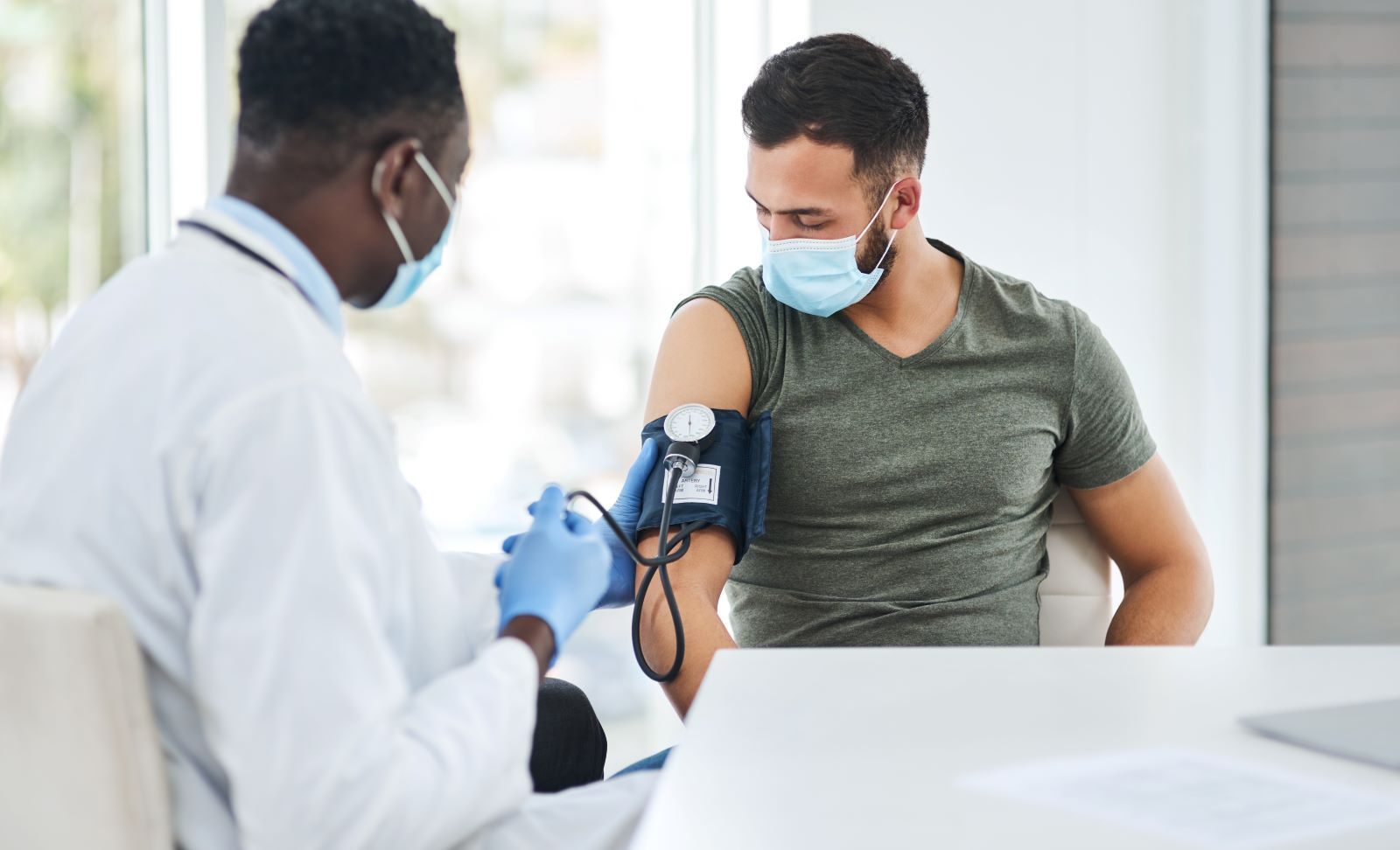<< Back
Is Your Blood Pressure Putting You at Risk?

May 04, 2022
Almost 1,000 people die each day from conditions related to hypertension – but it often goes undiagnosed until it’s too late.
Unlike regular variations in blood pressure that happen between activities, hypertension occurs when blood pressure fails to come back down to a normal level. The continually elevated pressure causes damage to blood vessels and increases risk for a number of chronic medical conditions, including coronary artery disease, heart attack, congestive heart failure, kidney disease and stroke.
What makes hypertension so challenging to catch is that there is often no associated symptoms – simply an elevated blood pressure reading, explained Steven Borer, DO, board-certified cardiologist with Hartford HealthCare’s Heart & Vascular Institute.
“By the time symptoms of heart disease or heart failure develop, the damage has already been done,” explains Dr. Borer. “However, it is possible for some people to have symptoms when their blood pressure is very high, including headaches, nosebleeds, visual changes, dizziness, palpitations, chest pains or shortness of breath.”
Dr. Borer emphasized the importance in having your blood pressure checked regularly to ensure it’s in a healthy range – ideally no higher than 130/80. It can be checked at a visit to your primary care provider, a health screening or with a home automated blood pressure monitor.
Before age 40, adults should have their blood pressure checked approximately once every one to two years. After age 40, it should be checked at least once a year, and more frequently if an elevated reading is noted.
If your blood pressure is high, there are a number of ways to address the issue without medication.
“People who eat healthier foods, exercise regularly, avoid risky substances (such as smoking or heavy alcohol use) and have a normal body weight are much less likely to have hypertension,” says Dr. Borer. “For example, for every two pounds of weight loss, blood pressure tends to decrease by about 1 mmHg. So, if someone loses 10 – 20 pounds, they may reduce their blood pressure by 5-10 mmHg, which is similar to the effect of some medications.”
The Dietary Approaches to Stop Hypertension (also known as DASH) suggests eating a variety of foods rich in potassium, fiber and protein and lower in sodium and saturated fat, such as vegetables, fruits, whole grains and fat-free or low fat dairy, fish, poultry, beans, nuts and vegetable oils. Common foods to avoid or minimize include red meat, processed meat (including bacon, sausage, hot dogs and many deli meats), highly processed snack foods (such as donuts and candy bars) and sugar sweetened beverages.
Physical activity can also help keep you at a healthy weight and lower your blood pressure. The Physical Activity Guidelines for Americans recommends that adults get at least 2 hours and 30 minutes of moderate-intensity exercise, such as brisk walking or bicycling, every week, which can lower your blood pressure another 5 mmHg. Even lower amounts of exercise, such as 15 – 30 minutes each week, can provide health benefits.
“When making changes, it’s important to start with setting very realistic and achievable goals, even if they seem very small,” says Dr. Borer. “Once those goals are achieved, new goals can be set and worked towards. Achieving these small goals will ensure greater success than making drastic changes all at once.”
Dr. Borer currently leads Hartford HealthCare’s new Lifestyle Medicine program, aimed at empowering patients to make specific and meaningful changes in their lifestyle to reduce their risk of cardiovascular disease and improve their overall health. A multi-disciplinary team of providers work closely with patients to assess their current lifestyle habits and address the underlying causes of many of the common chronic diseases. By working together to identifying sustainable changes, patients can get on a road to more optimal health.